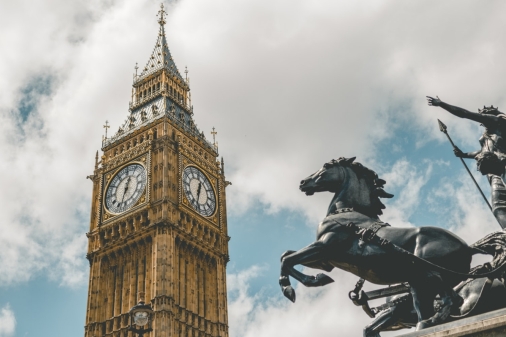
With the strong likelihood that the Labour government will outlaw Islamophobia, could Christians who deny that Islam is a saving faith fall foul of the law? Labour's Deputy Prime Minister, Angela Rayner, also Communities Secretary, confirmed in the House of Commons on Monday September 2 that the government is actively considering a definition of Islamophobia.
She said: "A new definition must be given careful consideration so that it comprehensively reflects multiple perspectives and considers potential implications for different communities.
"And we're actively considering our approach to Islamophobia, including definitions, and we'll provide further updates on this in due course."
Reporting on Rayner's comments in Parliament, London's evening paper, The Standard, reminded readers that in 2019 the all-party parliamentary group (APPG) on British Muslims devised a definition of Islamophobia as "rooted in racism and is a type of racism that targets expressions of Muslimness or perceived Muslimness".
The paper reported that the Labour MP for Manchester Rusholme, Afzal Khan, had previously written to Prime Minister Sir Keir Starmer "urging him to host meetings with Muslim community leaders and to formally adopt a definition of anti-Muslim prejudice put forward by the APPG".
In the Commons on Monday, Khan said the riots in August had caused "fear and distress" amongst his constituents and members of the Muslim community across the UK.
In March, ahead of the General Election, the Free Speech Union published an essay by Christian Concern's Head of Public Policy, Tim Dieppe, with a foreword by the atheist biologist Richard Dawkins, arguing that any attempt to define Islamophobia would have "a chilling effect on free speech".
Dieppe wrote: "People in a free society must be able to criticise each other's beliefs and practices. This necessarily includes religious beliefs and practices. The beliefs and practices of all religions and worldviews should be open to public scrutiny and people should be free to question, criticise, ridicule, or joke about them. But the widespread acceptance of too broad a definition of 'Islamophobia' risks silencing or censoring criticism of Islam. It is therefore a threat to free speech."
The Church of England's official teaching in Article 18 of its 39 Articles of Religion is that it is a theological error to claim that a person can be saved by the "Law or Sect" they profess. Article 18 insists that the Bible is clear that people can be saved "only by the Name of Jesus Christ".
Might the government's broad definition of Islamophobia catch out an Anglican minister who said publicly, in the light of Article 18, that no-one can be saved by following Islam?
A C of E public prayer, a Collect, in its 1662 Book of Common Prayer actually prays for the Christian salvation of Muslims, using the 16<sup>th Century term "Turks" to refer to them. One of the three Collects for Good Friday states:
"O Merciful God, who hast made all men, and hatest nothing that thou hast made, nor wouldest the death of a sinner, but rather that he should be converted and live; have mercy upon all Jews, Turks, Infidels, and Hereticks, and take from them all ignorance, hardness of heart, and contempt of thy word: and so fetch them home, blessed Lord, to thy flock, that they may be saved among the remnant of the true Israelites, and be made one fold under one shepherd, Jesus Christ our Lord; who liveth and reigneth with thee and the Holy Spirit, one God, world without end. Amen."
It would be very difficult to find a C of E church where that Collect was prayed on Good Friday, but it remains in the authorised liturgy of the Church by law established in England. What would happen to a vicar who chose to pray this Collect if the government passed a law with a broad definition of Islamophobia banning any utterance that caused offence to Muslims?
But a broad definition of Islamophobia would pose a much greater threat than censoring a little-used C of E Collect. It would threaten the proclamation of the biblical gospel in the UK. That is because sharing the gospel, according to the New Testament, involves calling on people to abandon their existing worldview and instead to embrace the eternal salvation from sin and death that only the Lord Jesus Christ can bring them.
As an example of the radical change of religious affiliation the gospel calls for, the Apostle Paul reminded the Christians in Thessalonica in 1<sup>st Century Roman Macedonia: "The Lord's message rang out from you not only in Macedonia and Achaia (southern Greece) - your faith in God has become known everywhere. Therefore we do not need to say anything about it, for they themselves report what kind of reception you gave us. They tell how you turned to God from idols to serve the living and true God, and to wait for his Son from heaven, whom he raised from the dead - Jesus, who rescues us from the coming wrath" (1 Thessalonians 1v8-10 – New International Version).
How can Muslims in Britain be saved if Christians are no longer free to tell them, graciously and lovingly, that Islam is not a saving faith?
Julian Mann is a former Church of England vicar, now an evangelical journalist based in Lancashire.













